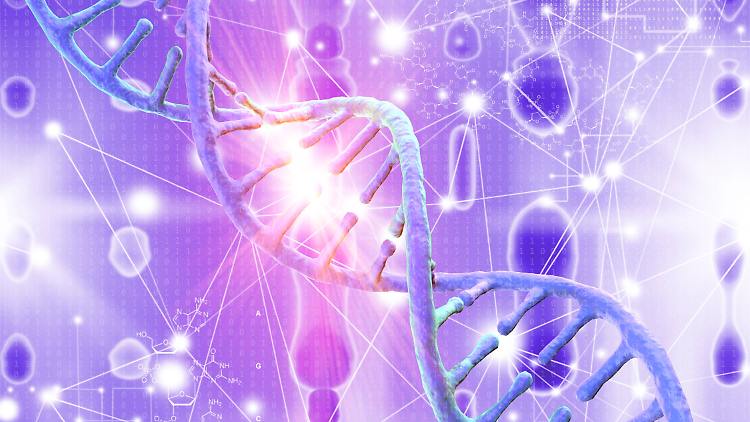
A Scottish woman shows an amazing resistance to pain. She also does not seem to know fear. Researchers are looking for the causes – and will find in their genetic material. A gene mutation gives the woman superpowers. But they also have their dark side.
She knows no fear. If she is hurt, she will not feel pain – and her wounds heal quickly. Often even without leaving scars. What sounds like the description of a character from superhero comics is reality with Jo Cameron from Scotland. She is a medical sensation. But British researchers have discovered their superpowers – they discovered the solution of the mystery in the genome of the woman, as they write in a study published in the British Journal of Anesthesia .
Cameron is in her early 70s and was unaware of her special trait for most of her life. On a backpacking trip through Eastern Europe, she stumbled on the first day and fell with her head against a concrete bollard – but despite face injury, blue eye and lost tooth, she saw no reason to cancel the holiday, she tells frankly in an interview with the news agency Reuters.
Her painlessness leads to other curiosities: If she burns her hand, she will notice that only when it smells of burnt flesh, says Cameron. Cuts and other injuries also go unnoticed by her – also healed this always amazingly quick. The pain of childbirth reported by other women had not even affected her in her case.
Do not panic in a car accident
Spicy spices, such as the extremely spicy scotch bonnet chillies, are not what Cameron does, too – in experiments they described their effect in their mouths merely as a pleasant “glow”. Not only is pain largely unknown to Cameron, she has also shown exceptional results in tests of anxiety and depression. In her own words, she never panics in dangerous situations, such as a car accident.
Researchers became aware of the peculiarity of Cameron only a few years ago. After an actually painful hand operation surprised the then 66-year-old with the fact that she then asked for no painkillers. “I assure you, I do not need anything,” she said, according to her own words, to Devjit Srivastava, a physician who is also involved in the study, as the New York Times reports. When he checked, it came out that Cameron had to undergo a year before an operation on her hip joint – which was already heavily worn, because she had not noticed the wear due to lack of pain.
Srivastava shared the case with experts who focus on the genetic material to find the cause of pain. Researchers at University College London and the University of Oxford analyzed Cameron’s genes, making an astounding discovery. They found a mutation in one region of the genome, which seems to inhibit the activity of an adjacent gene. This in turn is responsible for the production of the enzyme FAAH (fatty acid amide hydrolase).
“Lucky Molecule” is not degraded
FAAH plays an important role in sensation of pain, moods and memory: It is responsible for breaking down the “happiness molecule” Anandamide, which docks to the same receptors in the body as the intoxicating cannabis ingredient THC. FAAH is activated during stress, reduces the concentration of anandamides in the body and thus regulates anxiety in humans. In Cameron, however, the enzyme FAAH appears to be less active – the level of anandamide remains high, which explains its insensitivity to pain.
What does this discovery mean for medicine? The British researchers emphasize that it is difficult to draw conclusions from a single case. Nevertheless, they believe that their discovery could play a potential role in the treatment of acute and chronic pain. “It could lead to the development of a miracle drug used after surgery or in patients with cancer or chronic pain,” Srivastava told Scientific American .
However, the gene mutation probably has disadvantages: So Cameron said to be very forgetful. She is constantly laying her key and sometimes she forget the words in the middle of a sentence. Researchers were also able to observe memory difficulties in mice with a missing FAAH gene, which would confirm this. The ability to learn could also be impaired by a lack of FAAH. In addition, the lack of pain can be a problem: Pain is considered as important signals for the brain and have a protective function, which should protect the body from damage and life-threatening situations.

